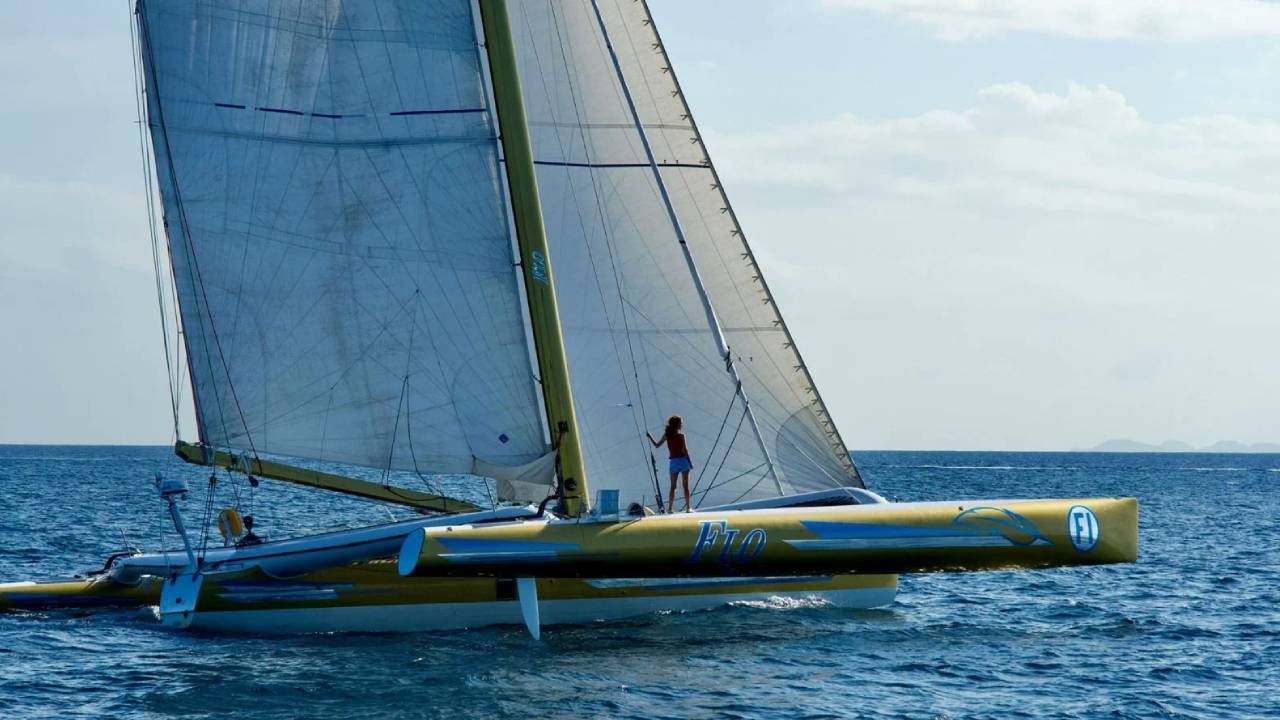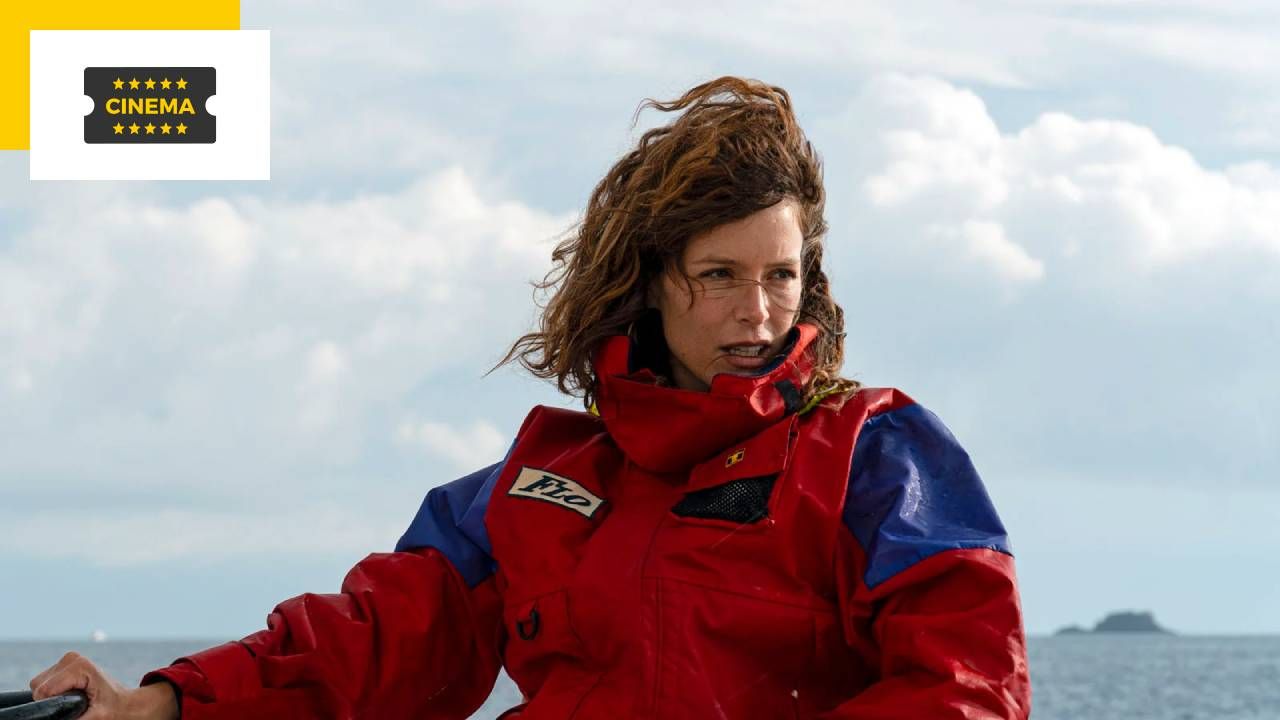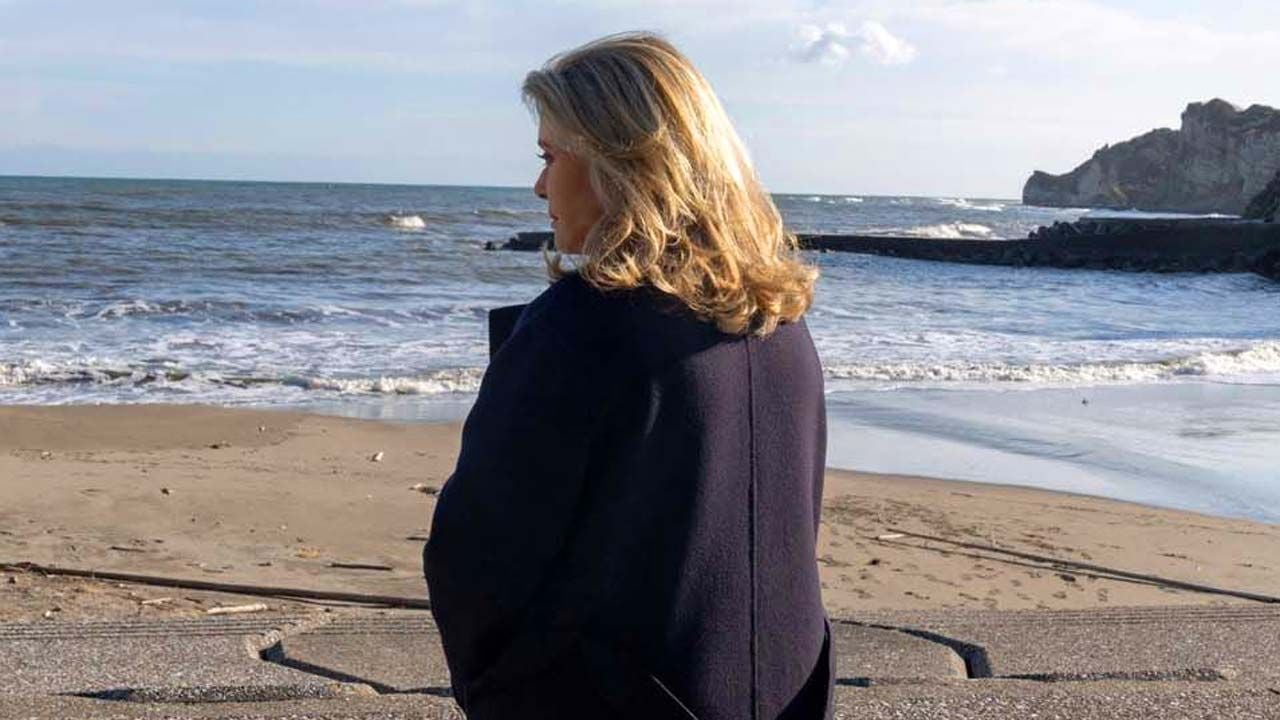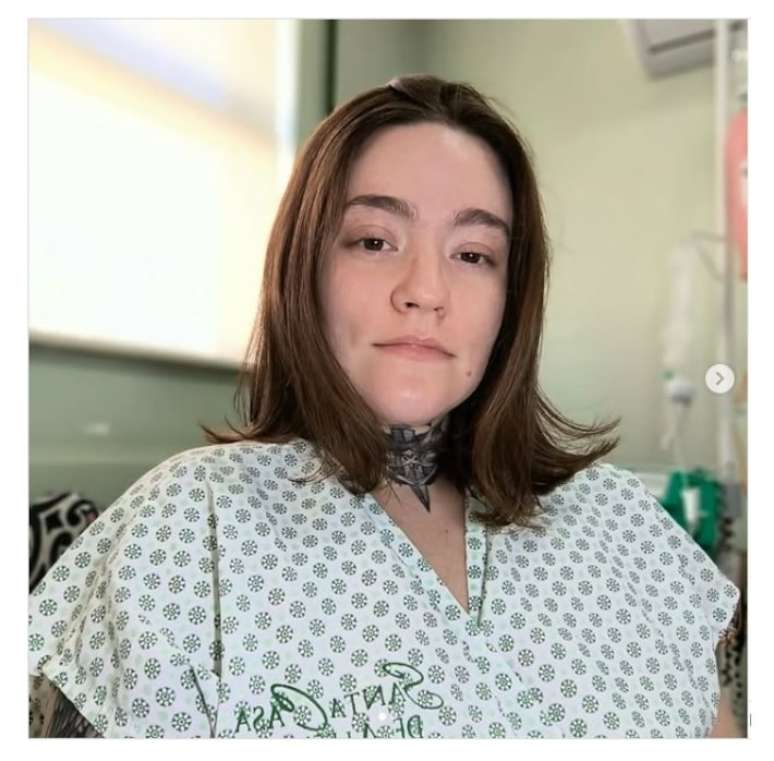What is it about?
Known as the “Little Bride of the Atlantic”, Florence Artaud was first and foremost a great sailor. His outstanding record, and unique in this manly world, peaked in 1990 when he won the Route du Rhum.
Beyond these exploits, Flo tells the incredible story of a fiercely independent woman who – after a car accident that almost cost her her life – decides to reject her bourgeois environment and the life that was planned for her, to live your dreams. complete.
AlloCiné caught up with Geraldine Danon, director and co-writer (with Ian Kefelek) of Flo, adapted from the book The Sea and Beyond.
How would you define Florence Artaud’s personality?
Geraldine Danone: I would say that she was first and foremost a free woman in the sense that she freed herself from all labels. Throughout his life, he never stopped liberating himself from all the labels that people wanted to put on him. She was a visionary, an avant-garde woman, a feminist the way I like it, that is, through her actions.
She was an extreme woman: extreme in everything that implies, in all the adjectives that can be attached to her. There was an extreme in both wanting to go and beat the men on their own turf and wanting to be the first woman to swim and race and win. Not just being the first woman, but simply being the first!
And then extreme, also in all other aspects of his personality, extremely luminous. But there is no light without shadow, and therefore also with parts of shadow. Although I decided to say, first of all, its light. Extremely generous, extremely feminine and extremely masculine. We can say anything and vice versa.
There is an expression I noticed in your reply: defeating men on their own ground. Would you say he had to create a form of machismo?
It wasn’t machismo, it was just that there were no women in the sailing world dating back to ancient times! Women were said to bring bad luck on boats. The woman was a sailor’s wife, but they were neither sailors nor navigators.
Florence Artaud proved that sailing is not all about muscle
Men simply considered it a matter of muscles. Florence Artaud proved that sailing was not all about muscles, but intelligence, instinct and will. He had a very strong instinct for the elements. He had a deep sense of wind. And all sailors say he was a great sailor. They worshiped. Then they saw him as a great competitor, and he said that after winning, there was no more machismo. It just didn’t exist.
So in the film we see the navigator, but also this woman in love, the great lover? There is a form of infertility. And in any case, you show her the good life!
Sailors, that’s it. Little do I know, I spent about fifteen years at sea… When we do long crossings, a month or even less, we come into port, we celebrate. It’s a way to release tension, take advantage, enjoy the moment. So obviously he was a good living person. He loved good food, he loved men. He was a great lover. He loved the sea the most. He loved to party.
Stéphane Caillard and Alexis Michalik
How did you choose Stéphane Caillard? Did he come to the project quickly or was the casting process long?
I had met quite a few actresses before Pascal Bereau, my casting director, introduced me to Stephanie. When I saw her enter the room, even before she left, I knew she was my Florence Artaud. First, because there was a physical resemblance, but it was that he had great grace and had this great presence, and also a certain absence of presence.
And that was something that we worked on a lot with Stefan, such a great generosity of the moment, which is also typical of sailors. The sailor is very much in the moment. He knows that there is no tomorrow, that yesterday is already over, so he lives in the moment with great vigor. Hence also the good life, the good food, the animal side of the party. And he had it. He had this grace, this strength, this weakness, this strength tinged with weakness. I immediately found the colors I wanted to show in Florence. And this was confirmed by passing the tests.

Stéphane Caillard and Geraldine Danone
Can you tell us about Stephane Keillar’s preparation-transformation work in Florence Arto?
We worked a lot. I wanted him to have as little pomp as possible, if only in his old age. We worked hard on the voice to make it go from 17 to 55 years old. And then, to be honest, the voice, the posture… Stefanie listened to a lot of radio and TV shows where Florence talks about herself, because she talked about herself a lot.
This is my take on Florence
He read her works. I gave him as much information as I could about Florence and what I wanted because again, it’s subjective. This is my take on Florence. The account is quite wide, it goes through many colors. I’m dealing with an actor who has great sensitivity, great intelligence, so he was able to convey that immediately. Then, for the sea scenes, I surrounded him with Philippe Poupon and Philippe Monet, two great navigators who taught him the right gestures.
I explained to them what I wanted from a technical point of view to show them again what I had in mind. We really worked as a couple, at first glance, with Stefan. I believe. The hair behind my jumpsuit stood up as I felt like I was seeing Florence again.

The scenes on the sea are impressive. Did you shoot as much as possible at sea in real conditions?
We shot everything at sea, there are no studio scenes, nothing on the docks, motion simulation. Everything was shot at sea, although I am quite proud, and several sailors who have already seen the film say that they have rarely seen such powerful images of the sea. I was very interested.
There are few, but when we return to the boat with him, we are on the boat with him, and it is true that we live in his race, the spectators with him. Although it remains primarily a portrait of a woman. People don’t have to like sailing to see this movie. It is primarily a portrait of a woman, an extreme woman, a strong woman, a fragile woman.
Did this require a rather heavy technical system? how did you do
Yes, it is already difficult to shoot at sea. Obviously, in cinema we like things square and framed and at sea, we depend on a lot of unknowns, so it’s not easy. But I had experience with boats and shooting at sea because I’ve done a few documentaries at sea and I think we were safe the whole time. We are really lucky. We never lost our camera and people got nervous quickly.
We were a small team. We have two boats that are real boats. I was also very interested in this. The Pierre 1er, which we named Flo, was the actual boat he won the Route du Rhum with. There is also a real boat in which he fell into the water.
There are all these night scenes too, which are not easy to achieve. But we were lucky and it turned out to be a very fun shoot. The whole team was really excited to accompany me and restore Florence, to pay her this beautiful tribute. We all had a common energy that was really very enjoyable and very intense for me.
How do you decide when to stop telling the story of his life and maybe just move on to inventing him in cardboard boxes?
I talked about his whole life, from the age of 17, when he was in a car accident, which was kind of a big bang in his life because it was going to lead to a lot of things. And until it falls into the water. The rest was Argentina, and it doesn’t seem representative of his life.
Life and death for Florence, but even for all sailors, are quite interconnected. The hand of death on the shoulder throughout life. He avoids it. There’s this accident, but there are plenty of other near-death moments. It breaks down most stupidly at the end of life. So I’m not talking about it, but I’m talking about it.
I believe that sailors are extremely alive people and to be extremely alive you have to have some awareness of death.
The end credits make it clear that there are certain aspects of “pure fiction”, especially between the relationship between Olivier de Kersausson and Florence Artaud. Is this what they were forced to point out?
Yes, I should add. I am telling the truth. But I felt obligated to add mentions to respect everyone’s privacy. The concern is to respect the privacy of the people who are still there.
There are liberties taken in the sense that I’m making film, fiction, not documentaries. So I use strong images to tell the truth, mostly.
There was a procedure on this film. Where are you ?
We won. Anyway, for me it’s a false controversy, because I think when the family sees the film, they will understand that I focused on telling the story of the light of Florence. Because to me he is a being of light. So the rest, I don’t know what we’re talking about, basically.
Whoever filed this lawsuit, haven’t you seen the movie?
there you have it. So I believe that when they see the movie, there will be no more arguments. The film speaks for itself.
Comments collected at Angoulême Film Festival de la Francophonie 2023
Source: Allocine
Rose James is a Gossipify movie and series reviewer known for her in-depth analysis and unique perspective on the latest releases. With a background in film studies, she provides engaging and informative reviews, and keeps readers up to date with industry trends and emerging talents.


![Tomorrow belongs to us: What awaits you on October 14, 2025, Tuesday, October 14 [SPOILERS] Tomorrow belongs to us: What awaits you on October 14, 2025, Tuesday, October 14 [SPOILERS]](https://fr.web.img4.acsta.net/img/3a/6b/3a6b6c830f9faa61c326457b86fe9dcd.jpg)



